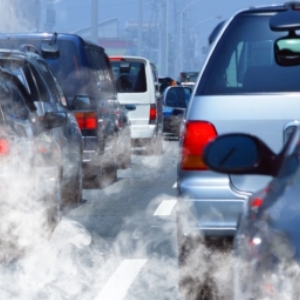
Air pollution is shortening the lives of people in northern China by about 5.5 years compared to the south, a disastrous legacy of a policy that provided free coal for heating in the north, an international study shows.
Environmental problems are a source of rising social discontent in China; last month Beijing promised new measures to crack down on air pollution, partly by hastening a shift to renewable energy from fossil fuels.
The report, by experts in China, the United States and Israel, said a communist policy of giving out free coal everywhere north of the Huai River in central China between 1950 and 1980 meant more heart and lung disease among 500 million people living in the area.
"Life expectancies are about 5.5 years lower in the north owing to an increased incidence of cardio-respiratory mortality," the researchers wrote in Tuesday's edition of the Proceedings of the National Academy of Sciences (PNAS).
Studying pollution and deaths in 90 cities, the experts found that life expectancy tumbled just north of the Huai River, where air pollution from burning coal was 55% higher than to the south between 1981 and 2000.
"The analysis suggests that the Huai River policy, which had the laudable goal of providing indoor heat, had disastrous consequences for health," the study said. It did not estimate how many lives the policy may have saved from winter cold.
Legacy continues
"The legacy of the policy continues today," Michael Greenstone, a professor of environmental economics at the Massachusetts Institute of Technology and one of the four authors, told Reuters. He noted that many buildings still had the coal-fired boilers that were installed for heating when coal was free, often with few filters.
The scientists said the findings, which firmly link air pollution to life expectancy, might help emerging economies such as China, India or Brazil to find better ways to combine a drive for economic growth with environmental controls.
"These are very powerful results," said Barbara Finamore, a China expert at the US Natural Resources Defense Council who was not involved in the study. "It provides new reason for concern among the population in northern China about the effect of coal on health."
China's cabinet last month promised measures such as accelerating the installation of pollution control equipment on small, coal-fuelled refineries and curbing the growth of industries such as steel and cement that consume large amounts of energy.
The World Health Organization says that about 2 million people die every year from air pollution, mostly in developing countries. Cities such as Karachi, New Delhi, Kathmandu, Beijing, Lima and Cairo are among the most polluted, it says.
Even in Europe, for instance, air pollution shortens average life expectancy by 8 months, said Anke Luekewille, an expert at the European Environment Agency in Denmark, although pollution levels have fallen considerably in recent decades.




 Publications
Publications
 Partners
Partners














